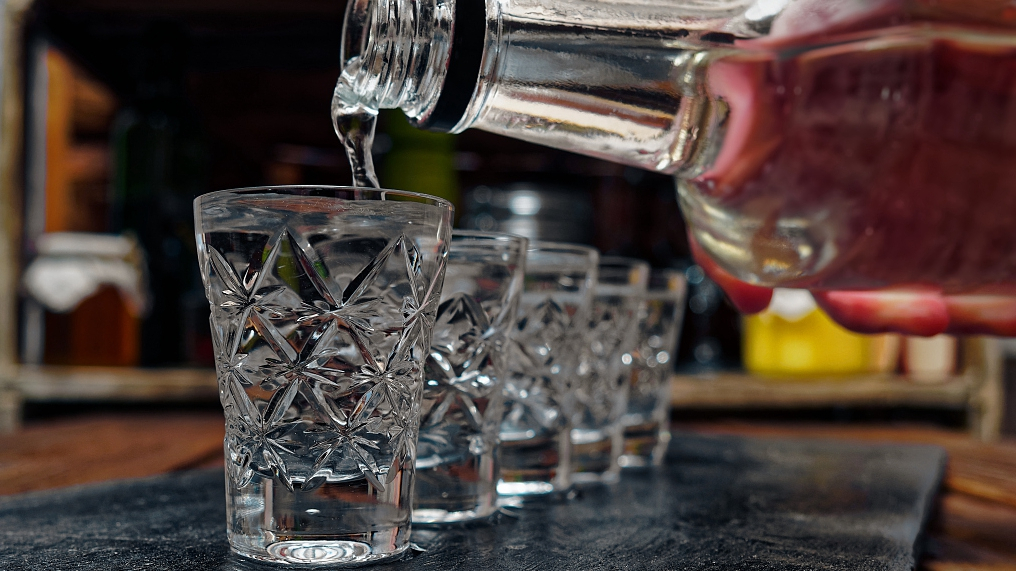
Alcohol consumption in Russia has fallen 43 percent from 2003 to 2016, a key factor in the country's rapid rise in life expectancy, says the World Health Organization. /VCG Photo
Alcohol consumption in Russia has fallen 43 percent from 2003 to 2016, a key factor in the country's rapid rise in life expectancy, says the World Health Organization. /VCG Photo
Russians might have a reputation as a nation of hard drinkers, but a report by the World Health Organization published Tuesday showed their alcohol consumption has dropped by more than 40 percent from its peak in the early 2000s.
The WHO has linked the decrease a raft of measures brought in since sport-loving President Vladimir Putin came to power in 2000, including restrictions on alcohol sales and the promotion of healthy lifestyles.
"The Russian Federation has long been considered one of the heaviest-drinking countries in the world," the report said, adding that alcohol was a major contributor to a spike in deaths in the 1990s.
"However, in recent years these trends have been reversed."
The study showed a 43-percent drop in alcohol consumption per capita from 2003 to 2016, driven by a steep decline in the consumption of bootleg booze.
The authors said this trend was a factor in increased life expectancies, which reached a historic peak in 2018, at 78 years for women and 68 years for men. In the early 1990s, male life expectancy was just 57.
Mortality resulting from all causes dropped by 39 percent from 2003 to 2018 in men and by 36 percent for women, according to the study, which looked at trends over almost 30 years.
Under Putin, Russia has introduced measures including a ban on shops selling any alcohol after 11:00 p.m., increases in the minimum retail price of spirits and an advertising blackout.
Earlier WHO figures showed Russian adults now drink less alcohol on average than their French and German counterparts.
(With input from AFP, Reuters)